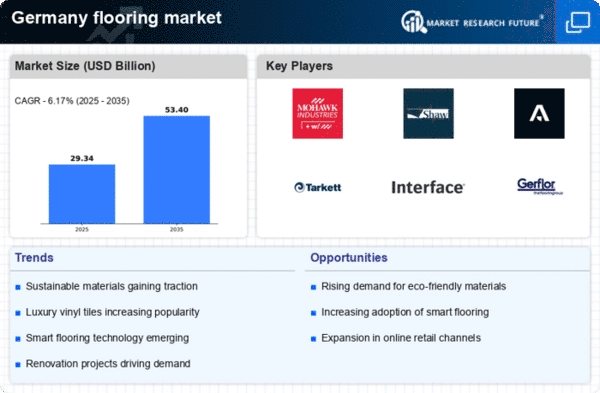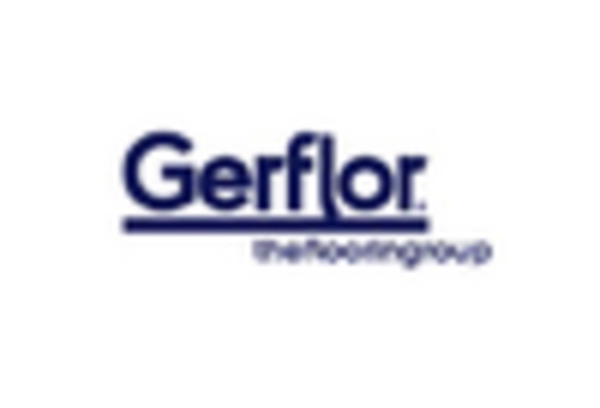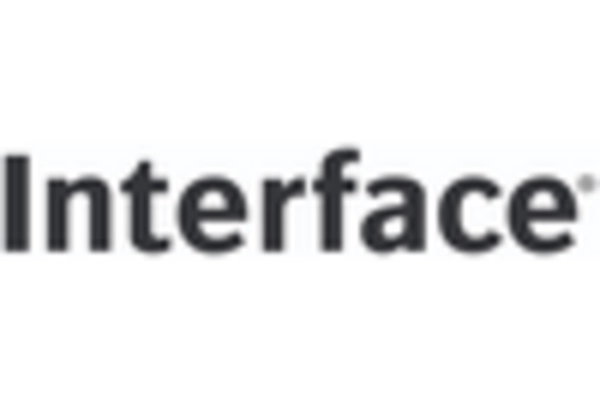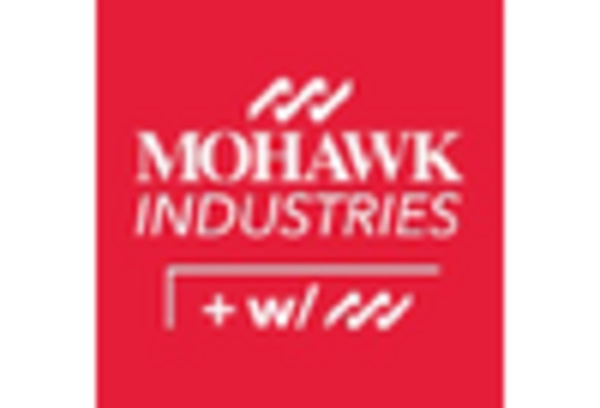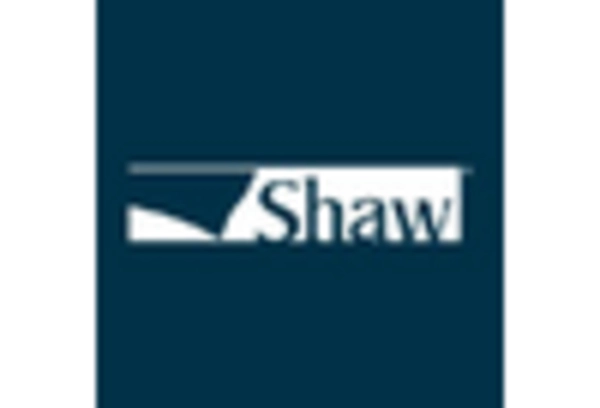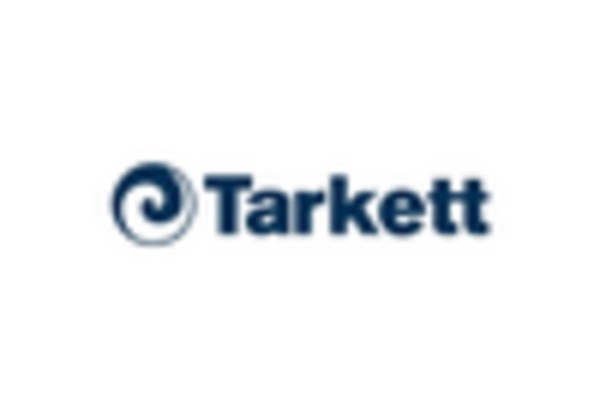Rising Urbanization
The ongoing trend of urbanization in Germany appears to be a significant driver for the flooring market. As more individuals migrate to urban areas, the demand for residential and commercial spaces increases, subsequently boosting the need for various flooring solutions. In 2025, urban areas in Germany are projected to house approximately 77% of the population, leading to a heightened focus on efficient and aesthetic flooring options. This urban growth necessitates innovative flooring materials that cater to both functionality and design, thereby influencing market dynamics. The flooring market is likely to see a surge in demand for products that align with modern urban living, such as space-saving and durable flooring solutions.
Increased Construction Activities
The construction sector in Germany is experiencing a robust phase, which is likely to propel the flooring market. With government initiatives aimed at enhancing infrastructure and housing, the construction of new residential and commercial buildings is on the rise. In 2025, the construction output is expected to reach €200 billion, indicating a substantial investment in new projects. This surge in construction activities directly correlates with an increased demand for flooring materials, as builders seek high-quality and cost-effective solutions. Consequently, the flooring market is positioned to benefit from this growth, as various flooring options are required to meet the diverse needs of new constructions.
Consumer Preference for Aesthetics
In Germany, there is a noticeable shift in consumer preferences towards aesthetically pleasing flooring options, which is influencing the flooring market. Homeowners and businesses are increasingly prioritizing design and style in their flooring choices, leading to a demand for products that not only serve functional purposes but also enhance visual appeal. This trend is reflected in the rising popularity of luxury vinyl and engineered wood flooring, which offer a blend of durability and design versatility. As consumers become more discerning, the flooring market is likely to adapt by introducing innovative designs and finishes that cater to these aesthetic preferences, thereby driving market growth.
Regulatory Standards and Compliance
The flooring market in Germany is significantly influenced by regulatory standards and compliance requirements. The government has established stringent regulations regarding environmental sustainability and safety in construction materials, which flooring manufacturers must adhere to. These regulations are designed to promote the use of eco-friendly materials and ensure the safety of flooring products. As a result, manufacturers are increasingly investing in sustainable practices and materials to meet these standards. This shift not only impacts production processes but also shapes consumer preferences, as buyers become more aware of the importance of compliance with environmental regulations. Consequently, the flooring market is likely to evolve in response to these regulatory pressures.
Technological Advancements in Flooring
Technological innovations are playing a crucial role in shaping the flooring market in Germany. The introduction of advanced manufacturing techniques and materials has led to the development of flooring products that are more durable, sustainable, and easier to install. For instance, the emergence of smart flooring solutions, which integrate technology for enhanced functionality, is gaining traction among consumers. These advancements not only improve the performance of flooring materials but also align with the growing demand for eco-friendly options. As technology continues to evolve, the flooring market is expected to witness a transformation, with new products that meet the changing needs of consumers.


